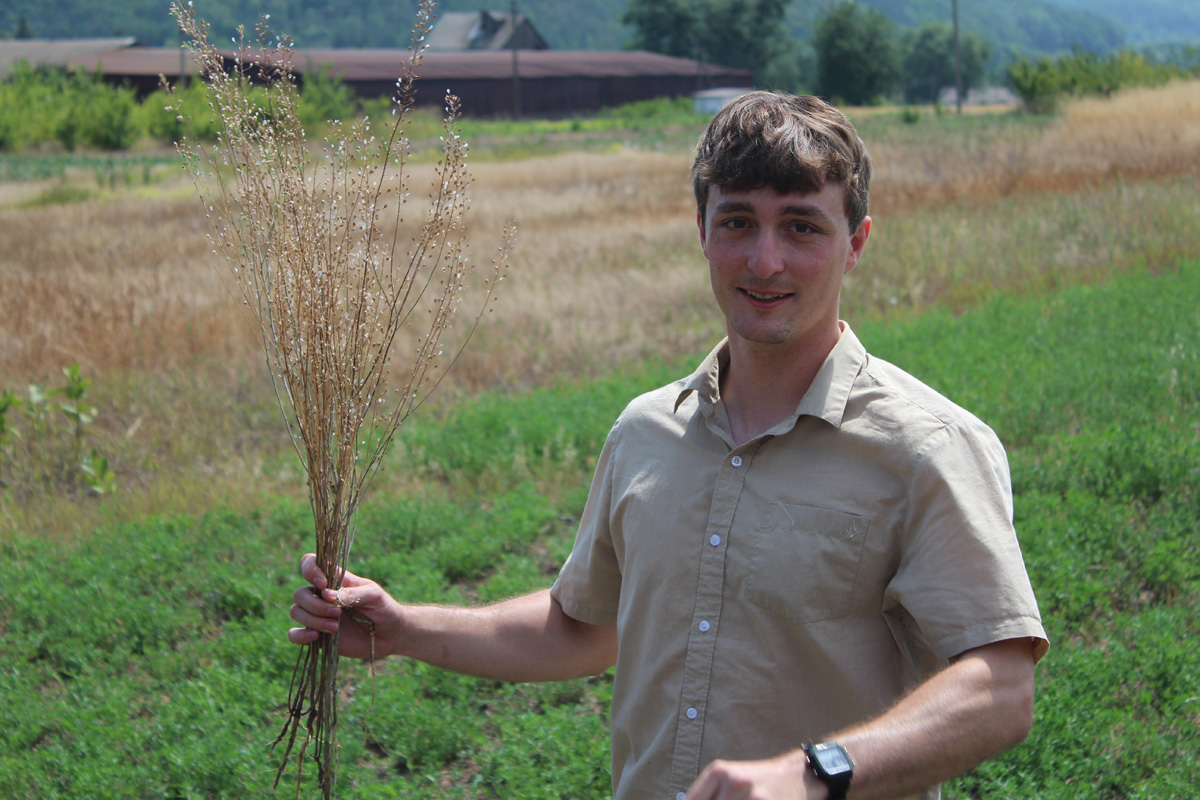A $26k USDA grant: This project will involve a month-long expedition to France to collect wild Camelina species, including the newly described C. neglecta which is only known to occur in southern France.
A $14k Seed Grant: The emerging aviation biofuel crop, Camelina sativa, is an allopolyploid containing subgenomes donated by two wild parental species, C. neglecta and C. hispida. The allopolyploid C. sativa and its two parental species were grown together in two growth chambers, one mimicking a hot environment and the other a cold environment. The cold environment plants showed greatly increased oil quality and quantity relative to the warm environment. I will sequence the transcriptomes of these plants to determine the environmental influence on the expression of genes in the oil biosynthesis pathway.
Next, methylomes will be sequenced for these plants to determine the heritable epigenetic changes that occur as a result of environmental change. The combination of transcriptomic and methylomic data will provide unique insights into how polyploid crop species regulate their multiple subgenomes to modulate agriculturally important traits in the face of global climate change. By elucidating the transcriptomic and methylomic machinery involved in the high quality oil of cold environment plants, we may discover ways to make directed changes in the C. sativa genome to elicit more favorable oil in plants grown in the warmer climates of the future.





